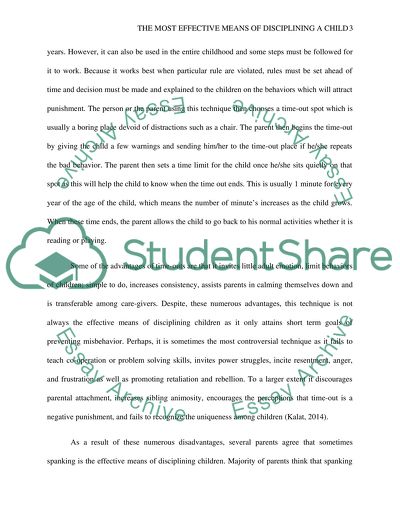Most effective means of disciplining a child Essay. Retrieved from https://studentshare.org/english/1495890-most-effective-means-of-disciplining-a-child
Most Effective Means of Disciplining a Child Essay. https://studentshare.org/english/1495890-most-effective-means-of-disciplining-a-child.


